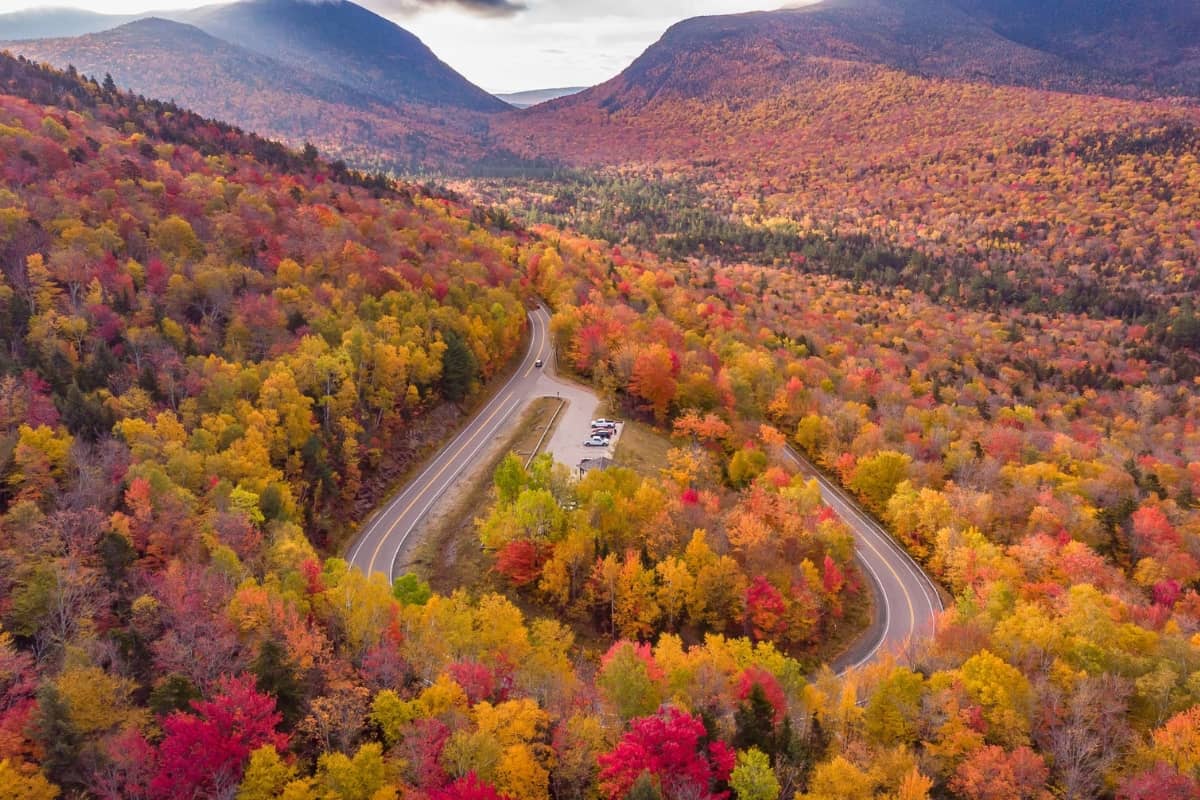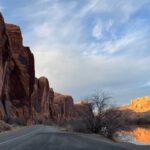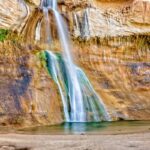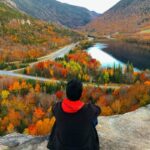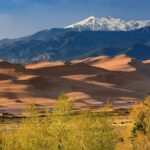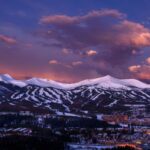The Kancamagus Highway, a scenic 34.5-mile stretch through the White Mountains of New Hampshire, is renowned for its natural beauty, historic sites, and hiking trails. Each year, thousands of visitors flock to the highway, especially during peak foliage season, to experience the breathtaking views and iconic stops such as Lower Falls and Rocky Gorge. However, this popular route can also be a target for scammers looking to take advantage of unsuspecting tourists. Below are seven scams locals have warned about, and tips on how to avoid them.
1. Rental Car Damage Scam
One of the most common scams travelers face on the Kancamagus Highway is the rental car damage scam. After returning the vehicle, some rental companies claim you caused damage that wasn’t there before, resulting in hefty repair fees. This scam is more common than you might think, especially if you’re renting from lesser-known or low-budget companies.
To avoid this trap, it’s essential to document everything. Take photos or videos of the car from every angle both before and after your rental period. If possible, conduct a joint inspection with a representative from the rental company before driving away. This way, you have concrete proof that no new damage was caused during your rental period. This simple precaution can save you a lot of money and headaches later.
2. Toll Fee Scam
Although there are no toll booths on the Kancamagus Highway itself, a toll scam can still occur. Scammers might send fake emails or text messages claiming you owe unpaid toll fees and threatening additional fines if you don’t pay immediately. These messages often include a link to a fraudulent website designed to steal your payment details.
To avoid falling victim to this scam, always verify toll charges through official government websites or your toll account. Never click on unfamiliar links sent via text or email. If in doubt, call the official toll road authority to confirm whether any charges are legitimate.
3. Fake Local Guides Offering Insider Tips
The allure of insider knowledge can sometimes lead tourists into the hands of scammers. On the Kancamagus Highway, there are individuals who pose as local guides, offering to show you secret spots or provide tips on the best places to visit. While some may offer genuine advice, others might lead you to overpriced tourist traps or even attempt to sell you unnecessary services.
Always cross-check any information provided by these so-called local experts with official sources. Most of the well-known attractions on the Kancamagus Highway, such as Sabbaday Falls or the Albany Covered Bridge, are publicly accessible and do not require special guides. Trusting official guides, websites, or reputable travel blogs will help you avoid getting tricked by fraudulent “insider tips”.
4. Overpriced Souvenirs
While there are plenty of quaint shops along the Kancamagus Highway, some may charge inflated prices for basic souvenirs. Tourists eager to take home a piece of the White Mountains may find themselves paying much more than the value of the items they purchase. This type of scam is common in highly trafficked tourist areas, where prices are adjusted based on what vendors believe tourists are willing to pay.
To avoid this, try to visit well-known, established shops and compare prices across different stores. Another tip is to research beforehand what kind of souvenirs you want to purchase, so you have a better idea of their value. This ensures you won’t be overcharged for simple items like T-shirts, mugs, or trinkets.
5. Unauthorized Parking Fees
Parking along the Kancamagus Highway can sometimes be tricky, especially during peak tourist seasons. Designated parking lots at popular spots like Lower Falls or Rocky Gorge often fill up quickly. Unfortunately, this has given rise to unauthorized individuals posing as parking attendants and charging fees for spots that should be free.
To avoid this, make sure to park only in official, well-marked parking areas. These spots will have clear signage indicating if a parking fee is required, and any legitimate fees will be payable through self-service kiosks or designated payment stations. Be wary of anyone asking for cash payments upfront.
6. Fake Accident Scam
Another common scam along busy tourist roads like the Kancamagus Highway is the fake accident scam. This involves scammers staging minor car accidents in which they claim exaggerated damages or even fake injuries, then attempting to extort money from you on the spot. The idea is to scare tourists into paying cash immediately to avoid further legal trouble.
In the event of an accident, always call the police to file an official report. Do not hand over any money or agree to settle on the spot without a proper police record. Scammers often prey on tourists’ unfamiliarity with local laws, making it essential to stay calm and follow standard legal procedures.
7. Inflated Attraction Fees
While many of the attractions along the Kancamagus Highway are free or require only a small fee, some unauthorized individuals have been known to charge inflated or even fake entry fees. For example, locations like the Albany Covered Bridge or Rocky Gorge are free to visit, yet scammers may claim a fee is required for access.
To avoid paying unnecessary fees, it’s a good idea to familiarize yourself with the attractions you plan to visit and whether or not they charge for entry. The U.S. Forest Service operates many sites along the Kancamagus Highway, and official fees are posted at designated kiosks or self-pay stations. Most day passes cost around $5, but many sites are free to enter.
Tips for a Safe and Enjoyable Trip
Traveling along the Kancamagus Highway can be a safe and enriching experience if you remain vigilant and aware of potential scams. Here are some general tips to help you enjoy your trip while avoiding common tourist pitfalls:
- Do your research: Familiarize yourself with the attractions, parking rules, and any official fees associated with the Kancamagus Highway before you set off.
- Trust your instincts: If something feels off, whether it’s a parking attendant asking for cash or a “local guide” offering unsolicited advice, trust your gut and proceed with caution.
- Document everything: Whether it’s your rental car or an accident scene, having photographic evidence can protect you from fraudulent claims or scams.
- Use official resources: When in doubt, rely on official websites, ranger stations, and U.S. Forest Service employees for accurate information about the highway and its attractions.
By staying informed and cautious, you can make the most of your scenic drive along the Kancamagus Highway without falling victim to these common scams.

